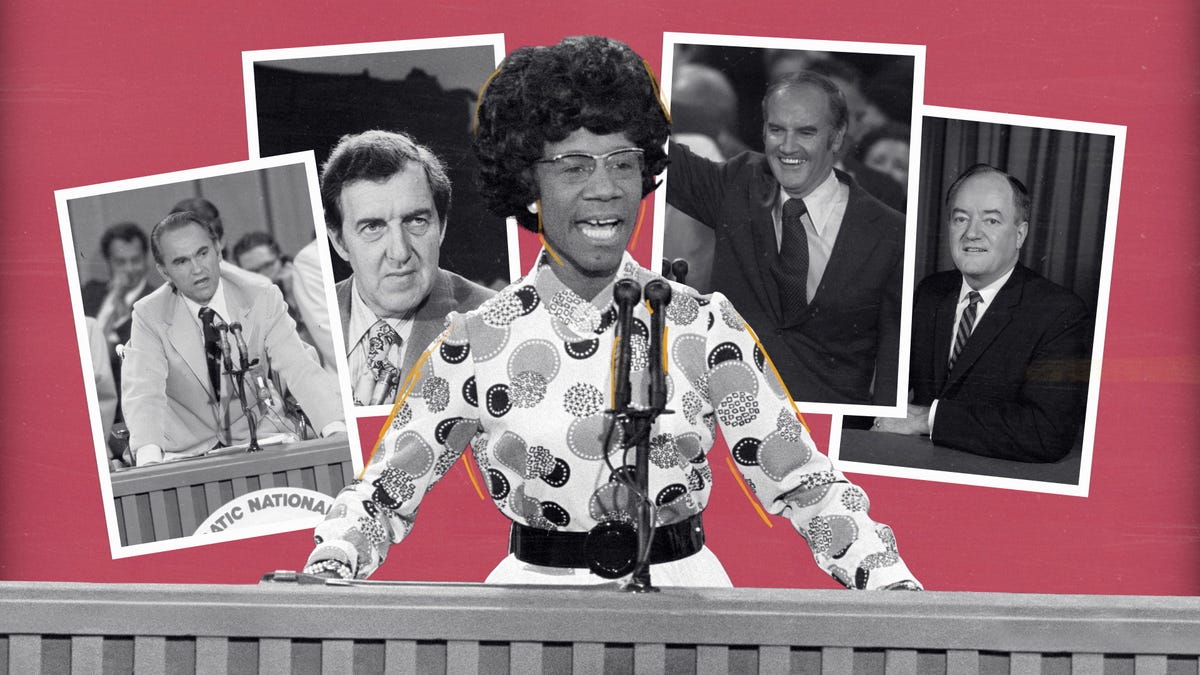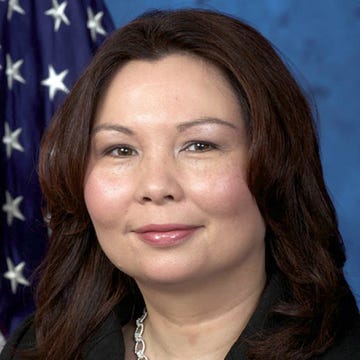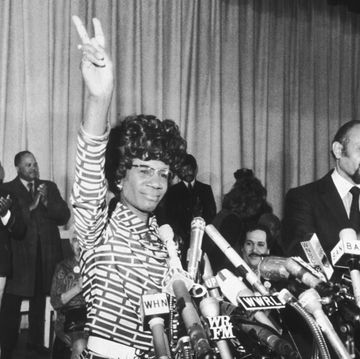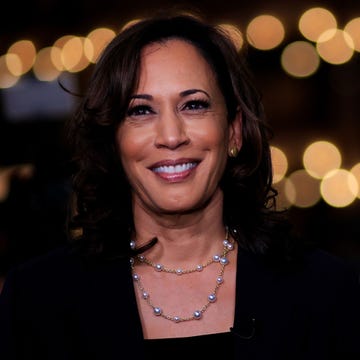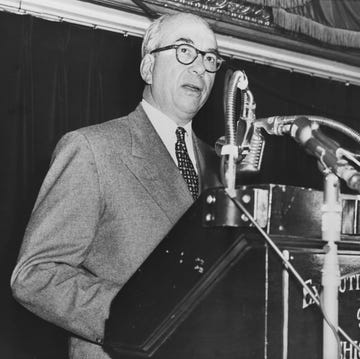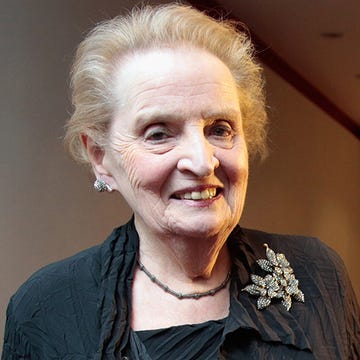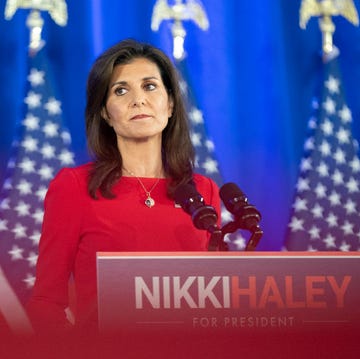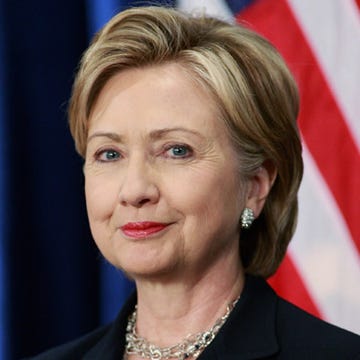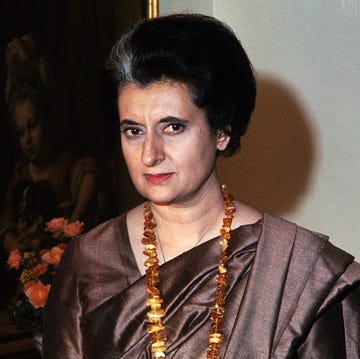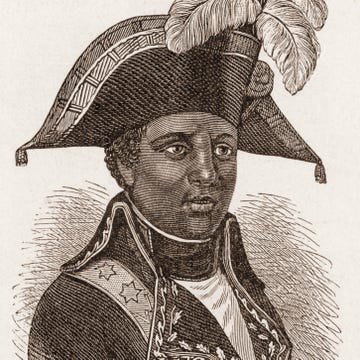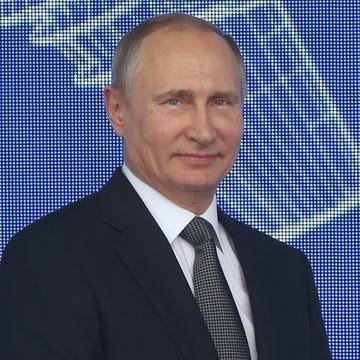(1908-1979)
Who Was Nelson Rockefeller?
Nelson Rockefeller was a grandson of John D. Rockefeller Sr., founder of Standard Oil, and the son of John D. Rockefeller Jr. After working in business and government, in 1958, Rockefeller was elected governor of New York, serving four terms. Later, in 1974, he was appointed vice president of the United States by President Gerald Ford. An avid art collector and patron, Rockefeller died in New York City in 1979. A wing of New York's Metropolitan Museum of Art is named in his honor.
Early Life and Family
Born on July 8, 1908, in Bar Harbor, Maine, Nelson Aldrich Rockefeller was the third of six children born to John D. Rockefeller Jr. and his first wife, Abby Aldrich Rockefeller. Headstrong and full of energy, Rockefeller had a rocky relationship with his father, who tried to bestow on his children the values of modesty and restraint—qualities deemed to be of little use by the ambitious young Rockefeller. By many accounts, Rockefeller was the leader among his siblings as well as his mother's favorite. Even as a child, he spoke of becoming president one day.
Considering his pedigree, it's no surprise Rockefeller rose to become a political powerhouse. His maternal grandfather, Nelson Aldrich, was an influential senator from Rhode Island; his paternal grandfather, John D. Rockefeller Sr., founded Standard Oil, becoming the wealthiest man in the United States during the 19th century—and continuing to hold that status for decades thereafter.
Rockefeller earned a Bachelor of Arts degree in economics at Dartmouth College in 1930, and, upon graduation, married Mary Todhunter Clark. Following a nine-month honeymoon, he worked at the London and Paris branches of Chase National Bank—a business owned in large part by the Rockefeller family. In 1931, despite the country's entrance into the throes of the Great Depression, ground had broken on Rockefeller Center, which had been initiated by John Jr. in the late 1920s and was the largest private construction project in New York City at the time. Joining the staff overseeing the Center development, Rockefeller quickly rose through the ranks by helping shepherd the ambitious project through a time of economic turmoil.
'Man at the Crossroads' Controversy
By 1938, at 30 years old, Rockefeller was named the president of Rockefeller Center, Inc. His tenure, however, was not without controversy: In 1934, he famously ordered the demolition of a mural by Mexican artist Diego Rivera, entitled "Man at the Crossroads," which portrayed Soviet leader Vladimir Lenin. While he had commissioned Rivera to complete a mural in the RCA building, located at Rockefeller Center, Rockefeller (along with several others who managed to view the work before it was publicly unveiled) disliked Rivera's insertion of Lenin—an addition that was neither approved nor known about in advance. The artist had reportedly included the Soviet leader in his mural in an attempt to portray the turbulent political atmosphere at the time, which was largely defined by conflicting capitalist and socialist ideologies and escalating fears regarding the growth of the Communist Party.
An ensuing publish backlash against the Rockefellers—who, after long proclaiming a deep dedication to the arts, now looked both hypocritical and tyrannical—reportedly humiliated Rockefeller's mother, Abby, who, in response to the negative publicity, stated that she had never wanted the mural to be destroyed. While Rockefeller is widely credited with demolishing Rivera's mural, John Jr. later attempted to explain the incident, stating, "The picture was obscene and, in the judgment of Rockefeller Center, an offense to good taste. It was for this reason primarily that Rockefeller Center decided to destroy it."
Political Career Beginnings
During his time in New York, Rockefeller's interest in government began to shine through. In 1933, he served as a member of the Westchester County (New York) Board of Health. He went on to enter national and international politics in 1940, when he was appointed coordinator of the Office of Inter-American Affairs by President Franklin D. Roosevelt.
Nelson would later receive presidential appointments by Harry S. Truman, Dwight D. Eisenhower and Richard Nixon. His impressive career in public service would ultimately help to integrate the Rockefeller name with the American political arena.
New York Governor
In 1958, Rockefeller successfully campaigned for the governorship of New York—a victory that made him an instant contender for the Republican presidential nomination in 1960. Although Rockefeller lost the nomination to the more conservative Nixon, he would to try to win the party's nomination again in 1964. That bid was also met with failure, as his campaign became mired in controversy surrounding his divorce from wife Mary Todhunter Clark Rockefeller and subsequent marriage to the much younger Margaretta "Happy" Murphy.
Although he didn't find success as a presidential candidate (he ran unsuccessfully again in 1968), Rockefeller won high praise for his work as governor of New York, serving four consecutive terms in that position. A progressive Republican, he focused on education, welfare, housing, transportation and the arts.
Vice Presidency and Final Years
In 1974, just one year after resigning as governor, Rockefeller was nominated for the vice presidency by President Gerald Ford. He subsequently served as vice president, under Ford, from 1974 to 1977.
Rockefeller died of a heart attack in New York City on January 26, 1979.
Personal Life
Rockefeller was married twice. With his first wife, Mary, Rockefeller had three sons, Rodman, Steve and Michael, and two daughters, Ann and Mary; with second wife Margaretta Murphy, he had two sons, Nelson Jr. and Mark.
QUICK FACTS
- Birth Year: 1908
- Birth date: July 8, 1908
- Birth State: Maine
- Birth City: Bar Harbor
- Birth Country: United States
- Gender: Male
- Best Known For: The son of John D. Rockefeller Jr., Nelson Rockefeller served four terms as governor of New York. He was later appointed vice president under President Gerald Ford.
- Industries
- Business and Industry
- U.S. Politics
- Art
- Astrological Sign: Cancer
- Schools
- Dartmouth College
- Death Year: 1979
- Death date: January 26, 1979
- Death State: New York
- Death City: New York
- Death Country: United States
Fact Check
We strive for accuracy and fairness.If you see something that doesn't look right,contact us!
CITATION INFORMATION
- Article Title: Nelson Rockefeller Biography
- Author: Biography.com Editors
- Website Name: The Biography.com website
- Url: https://www.biography.com/political-figures/nelson-rockefeller
- Access Date:
- Publisher: A&E; Television Networks
- Last Updated: April 14, 2021
- Original Published Date: April 2, 2014
QUOTES
- America is not just a power, it is a promise. It is not enough for our country to be extraordinary in might; it must be exemplary in meaning.
- The chief problem of low-income farmers is poverty.

